Monty Python – The Legend Lives On (Mostly)
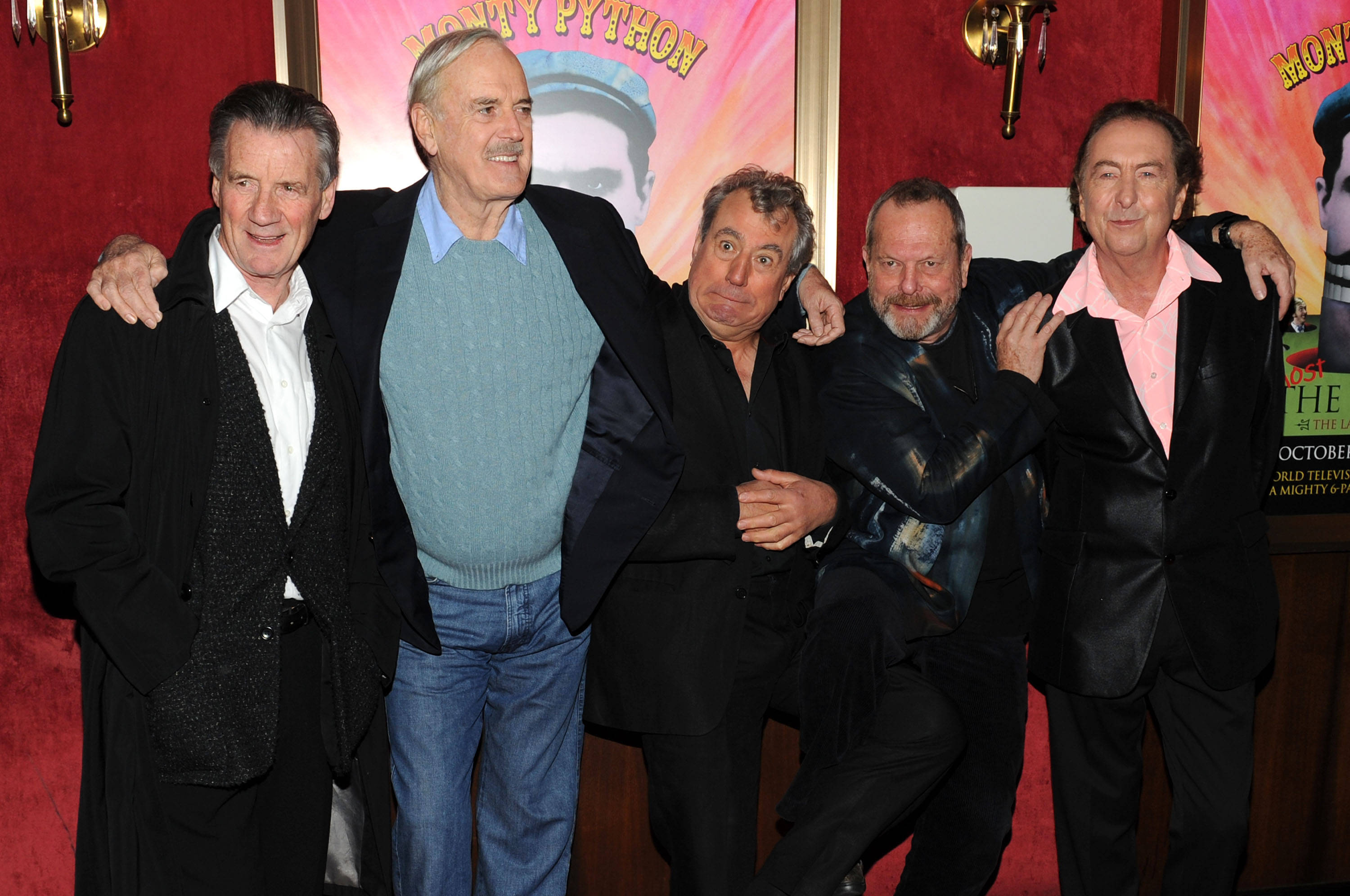
Monty Python's
, Monty Python Live (Mostly) reunion show debuted Tuesday evening in South London's O2 Arena to mixed reviews. While mostly positive, a minority of critics noted that watching a group of old men re-hash jokes from the 70's is only fodder for die-hard fans. But that is precisely for whom the show was made for. Because of the group's cult-status, the reunion show had been greatly anticipated, and when rumors turned into actual plans, tickets to the July 1
st show sold out in under a minute. The tickets to the O2 show were so popular, in fact, the group decided to extend the performances into late July, and broadcast their July 20
th performance live to cinemas world-wide. Although the group gained notoriety from their ground-breaking series,
Monty Python's Flying Circus, they are perhaps most-well known for their equally ground-breaking film,
Monty Python and the Holy Grail. As one of the most important comedy troupes in history, they constantly pushed the boundaries of good-taste, and what is considered “funny”. As a tribute to this revolutionary group of comedians, we at the Entertainment Fuse movie department have decided to do a retrospective into the group's films, as well as their more-noteworthy solo projects.
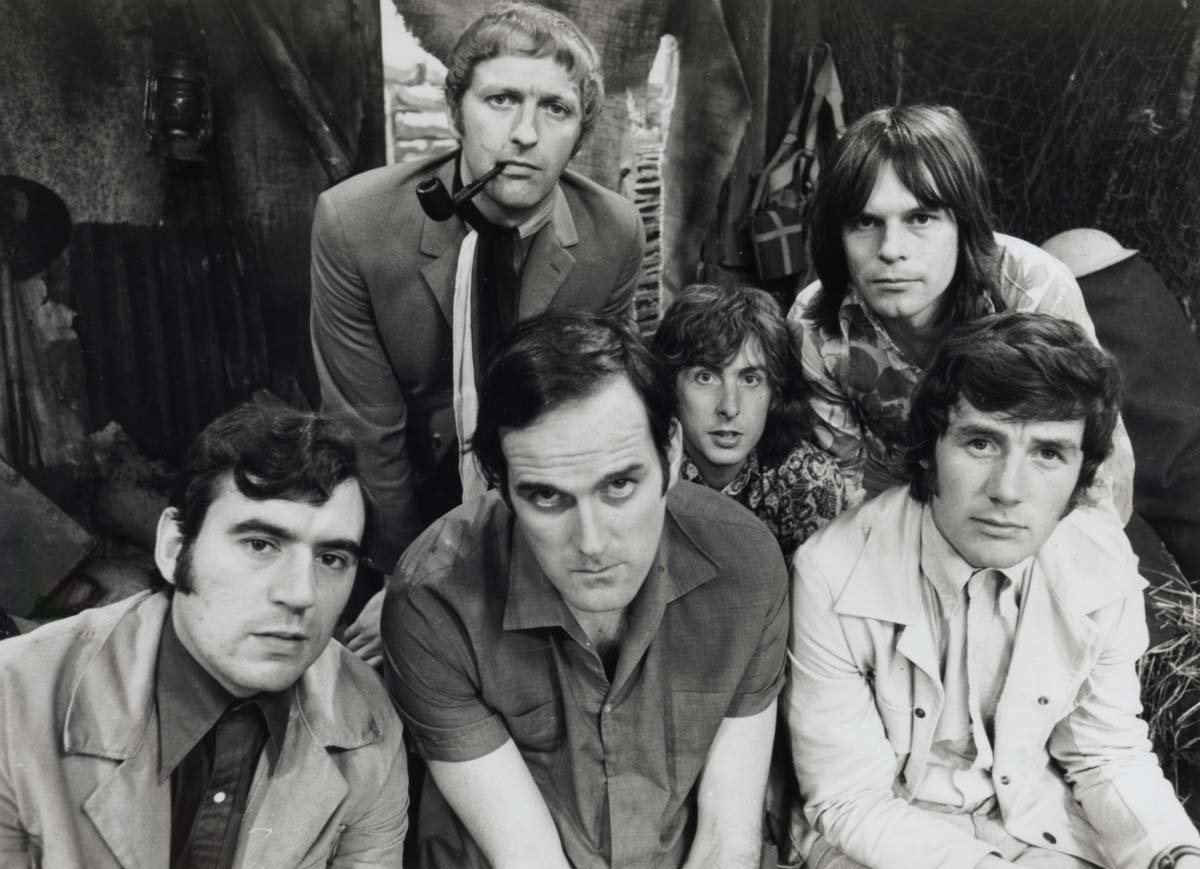
Having had various levels of individual success, the group became accustomed to working together on the 1966-67 television program,
The Frost Report, where John Cleese was a cast member and Eric Idle, Graham Chapman, Terry Jones and Michael Palin were writers. After the writing pair of Chapman and Cleese were offered their own show from the BBC, they quickly enlisted the help of Palin, Jones, Idle and Terry Gilliam who had their own Television deal with ITV in the works. The group wrote the show as a “stream of consciousness” tied together by Gilliam's unique animations. An instant success, the show lasted for three seasons (1969-1973), before Cleese departed, and continued for a fourth without him (1974).
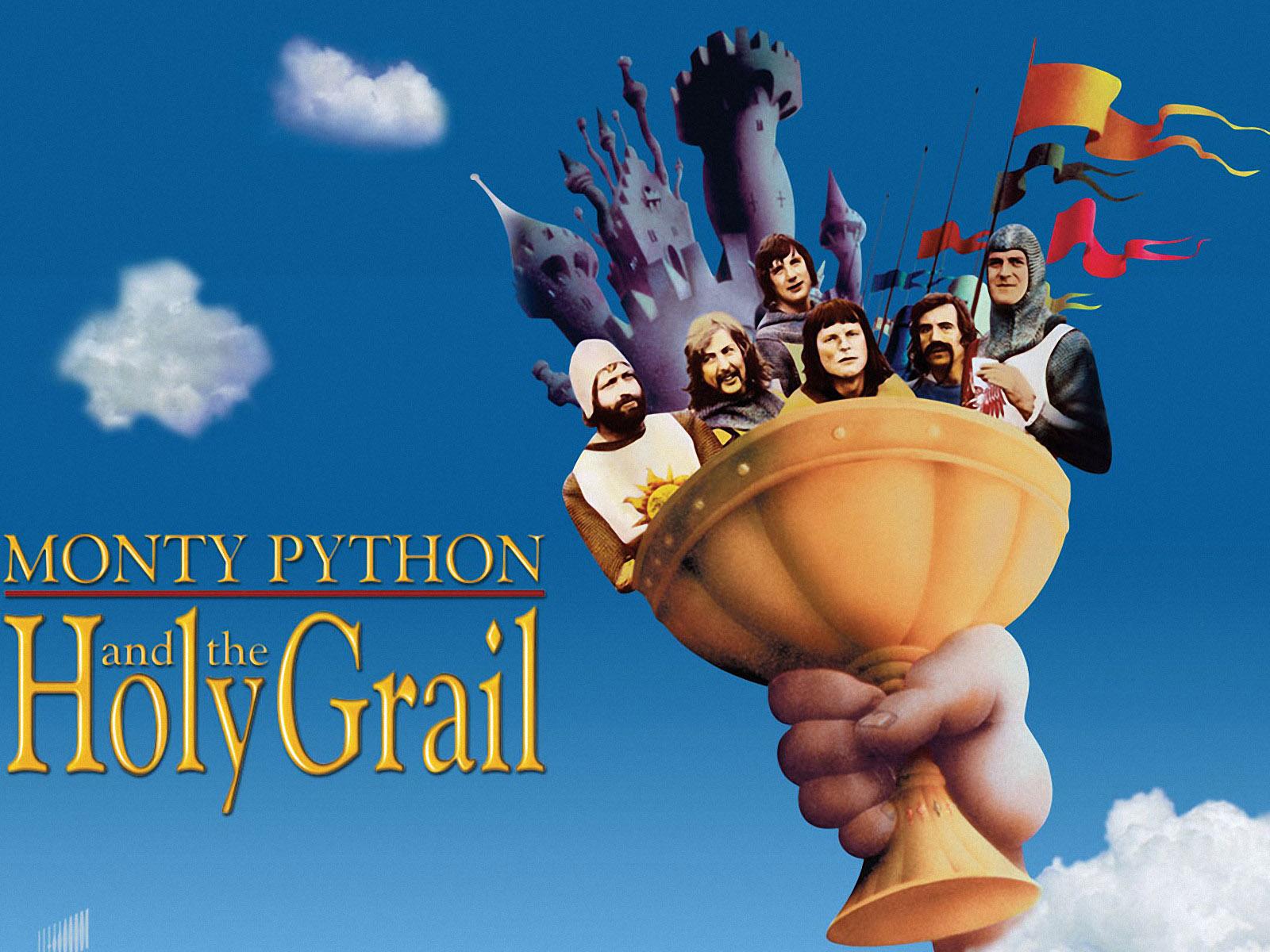
In 1971 the group released their first film,
And Now for Something Completely Different, as a (unsuccessful) foray into the American market. The film was a “greatest hits” of their
Flying Circus sketches, redone with a very low budget, and for a cinematic audience. Although it did well in the UK where the group was already somewhat famous, it did not serve as a spring board into American homes. Between the third and fourth season, Monty Python began shooting
Holy Grail, which was their first “actual” film. Featuring completely-unseen material, it was an international success. Starring Graham Chapman as the illustrious King Arthur, the film became a cult classic, and is the foundation of many Python fans' love of the group. With the release of
Holy Grail came international success, and the eventual broadcasting of
Flying Circus in America.
Holy Grail is still considered a seminal comedic film, full of classic Python absurdist humor, beautifully assembled animation and the delightful mockery of a celebrated English legend. Monty Python continued their trend of making critically-acclaimed films with the release of
Monty Python's Life of Brian. Produced by Beatles guitarist, George Harrison,
Life of Brian was a story about a man, Brian (Graham Chapman) who grew up alongside Jesus Christ. Python, once again, used their farcical humor to suppose what would happen if a normal man were to grow up in a time of religious turmoil, and accidentally acquire a group of die-hard followers. Met with condemnation from a minority of religious leaders upon its release, the film was still a box-office hit, and retrospectively considered as perhaps the group's best film. The Pythons' final film (other than
Live at The Hollywood Bowl – a filmed stage performance by the Pythons) was
Monty Python's The Meaning of Life. Following closely to
Flying Circus's template, the film was a series of skits featuring one aspect of “life”. Although the film did not contain any of the iconic animations by Terry Gilliam, it was introduced by a short film, The
Crimson Permanent Insurance, directed by Gilliam.
The Meaning of Life marks the last time all six Pythons collaborated on film.
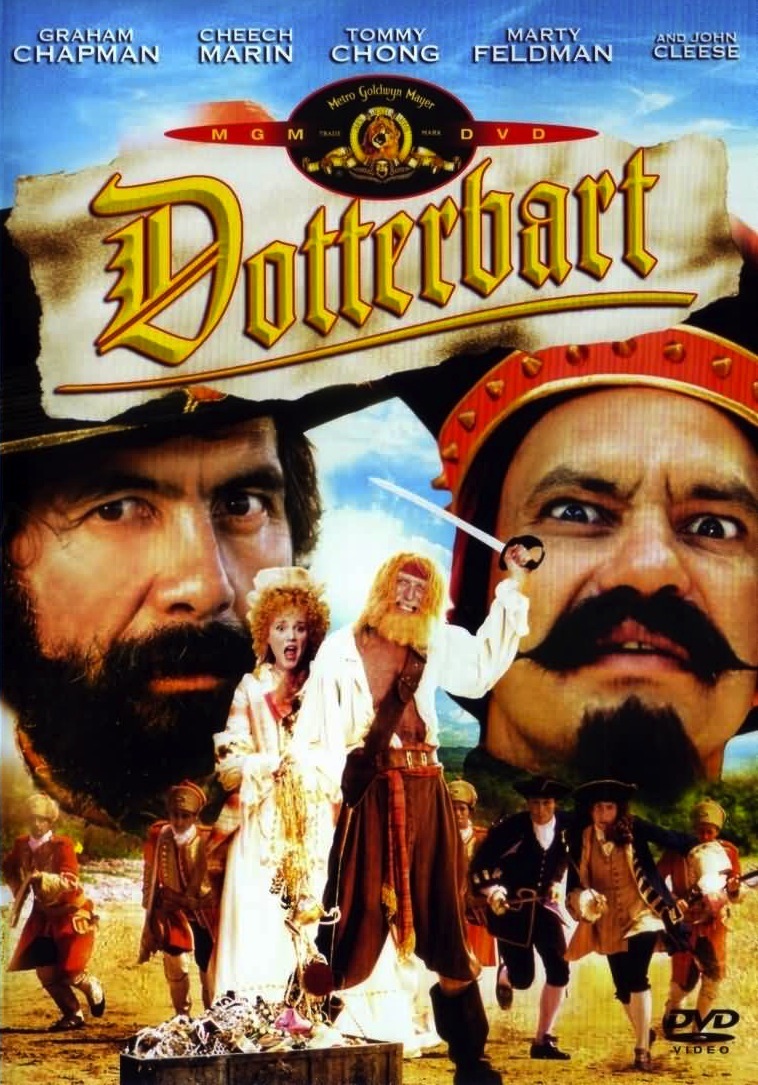
After Monty Python dissolved, the various, very talented members made their own contributions to the film world. Graham Chapman, who passed away in 1989 from cancer, had a very prolific writing career. Most-notably (aside from Python), penned the screenplay to
Yellowbeard, a spoof of the popular “Blackbeard” pirate legend. The film, which also stars Chapman as the eponymous Yellowbeard, features Tommy Chong and Cheech Marin as fellow pirates. Yellowbeard, who has been released from prison to lead the British Royal Navy to his treasure, must work alongside his crew – and newly-discovered son – to acquire the treasure before the Royal Navy. As with most movies made by a Python, the film features a cameo of at least one other Python (in this case, John Cleese plays the pirate, Harvey Pew).
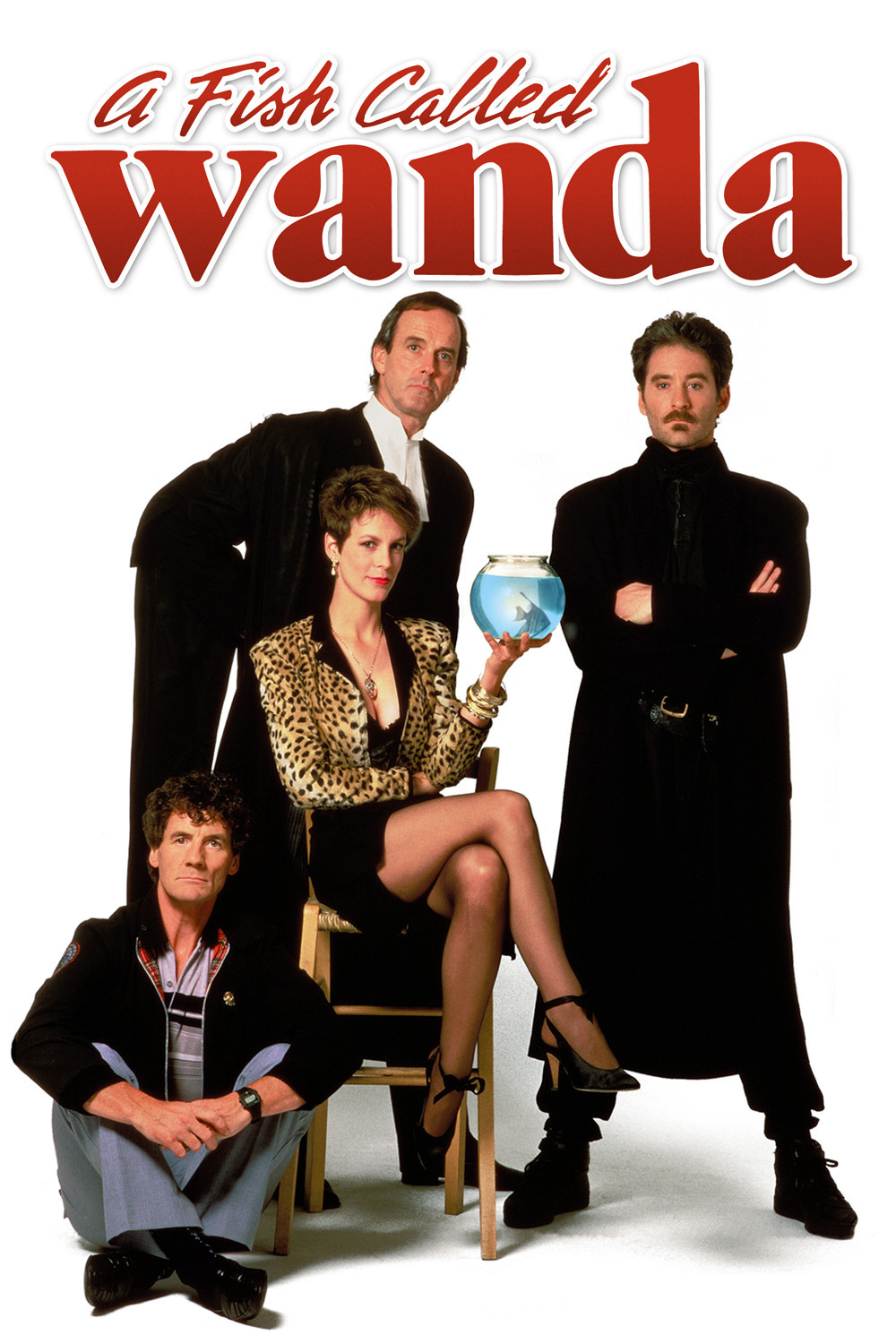
John Cleese has had the most prolific career of any of the Pythons, and has 130 acting credits to his name on IMDB. He has played roles from Q's assistant R(and eventually Q) in James Bond films, to Nearly-Headless Nick in the
Harry Potter franchise. Cleese's voice acting is just as diverse, having played the King in the
Shrek series, and the Narrator in the 2011
Winnie the Pooh film. Cleese also penned the story to several films, including
A Fish Called Wanda, and more recently, animated hit,
The Croods.
A Fish Called Wanda is a critically-acclaimed heist comedy surrounding a superb cast including Jamie Lee Curtis, Kevin Kline and fellow Python, Michael Palin. A hilarious slap-stick comedy,
A Fish Called Wanda features Jamie Lee Curtis as a con-artist who uses her charm to get at a hoard of stolen jewelry. Kevin Kline won an Academy Award for his work as a Supporting Actor, and the film was nominated for Best Director and Best Original Screenplay.
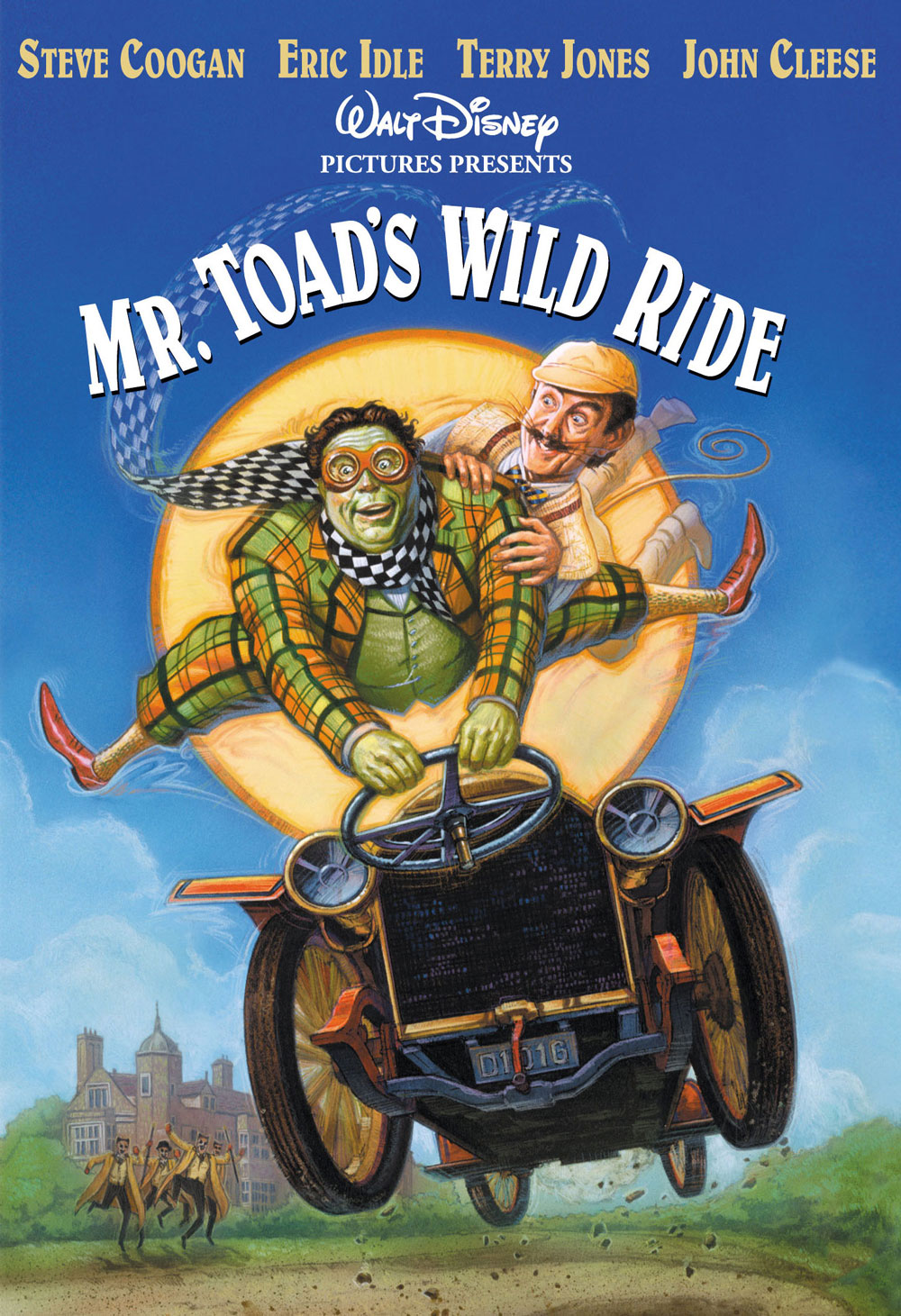
Terry Jones is best known for his direction of the Python films (excluding
And Now for Something Completely Different) as well as being the writer/director of comedy films
Eric the Viking and
Mr.Toad's Wild Ride.
Eric the Viking stars a young Tim Robbins and Mickey Rooney as Vikings who must sail to Valhalla to ask the gods to end Ragnarok. It is, of course, a Pythonesque comedy full of out-of-place humor and satire.
Mr. Toad's Wild Ride stars Steve Coogan (Mole), Eric Idle (Rat) and Jones himself (Toad). The film also features Python-ers Palin and Cleese, and is set in pre-WWI England. Mole and Rat must go on a long and hilarious quest to find Mr. Toad, who has bought up all the land on which the duo previously lived. Thwarting evil weasels along the way, this Disney classic even inspired a ride of the same name at the Disneyland Amusement Park.
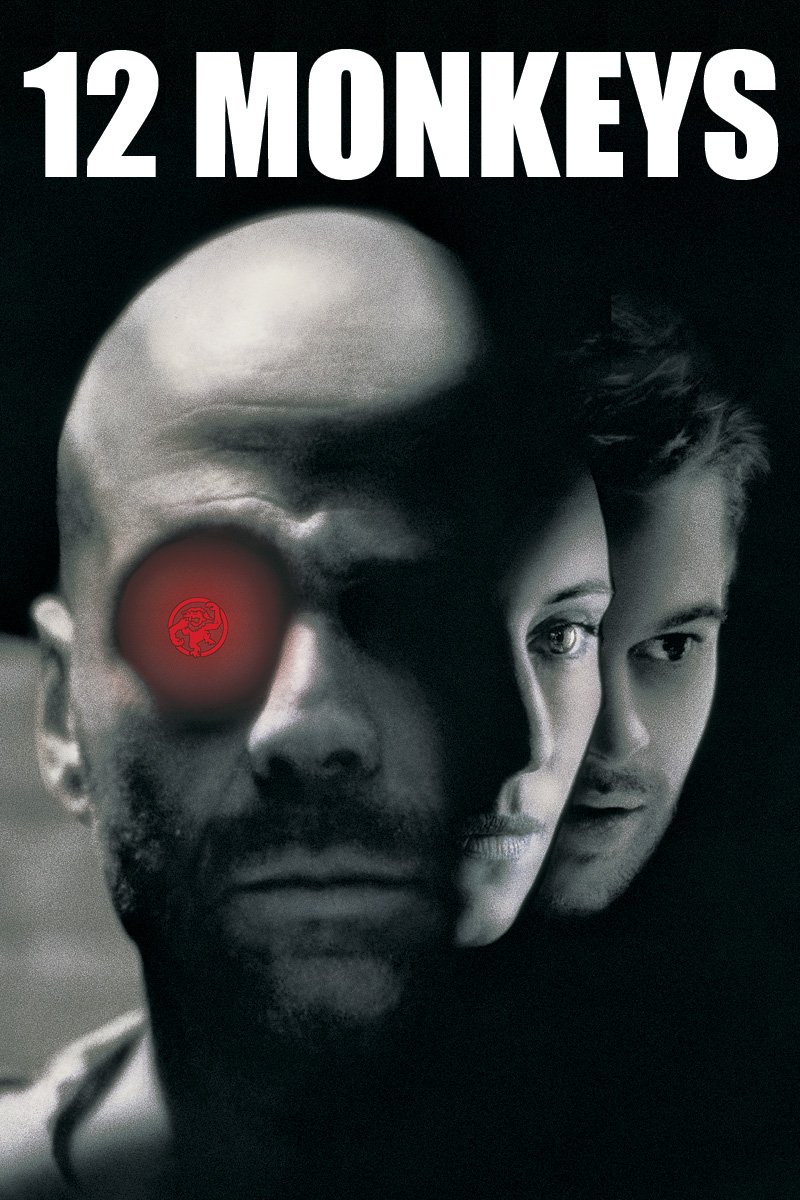
Also known for his fruitful directing career, Terry Gilliam has directed over ten hollywood features including the seminal,
Brazil,
The Fisher King,
Time Bandits,
The Adventures of Baron Von Munchausen,
Fear and Loathing in Las Vegas and
12 Monkeys. Defined by his surrealist stylings and bizarre world construction, Gilliam has made an indelible mark on the film world. One of his most popular films,
12 Monkeys stars Bruce Willis as an unwilling time-traveler who must go back in time to thwart the destructive plans of anarchist group, The 12 Monkeys. This meandering and farcical narrative, is compelling to watch, and is revolutionary in its concept.
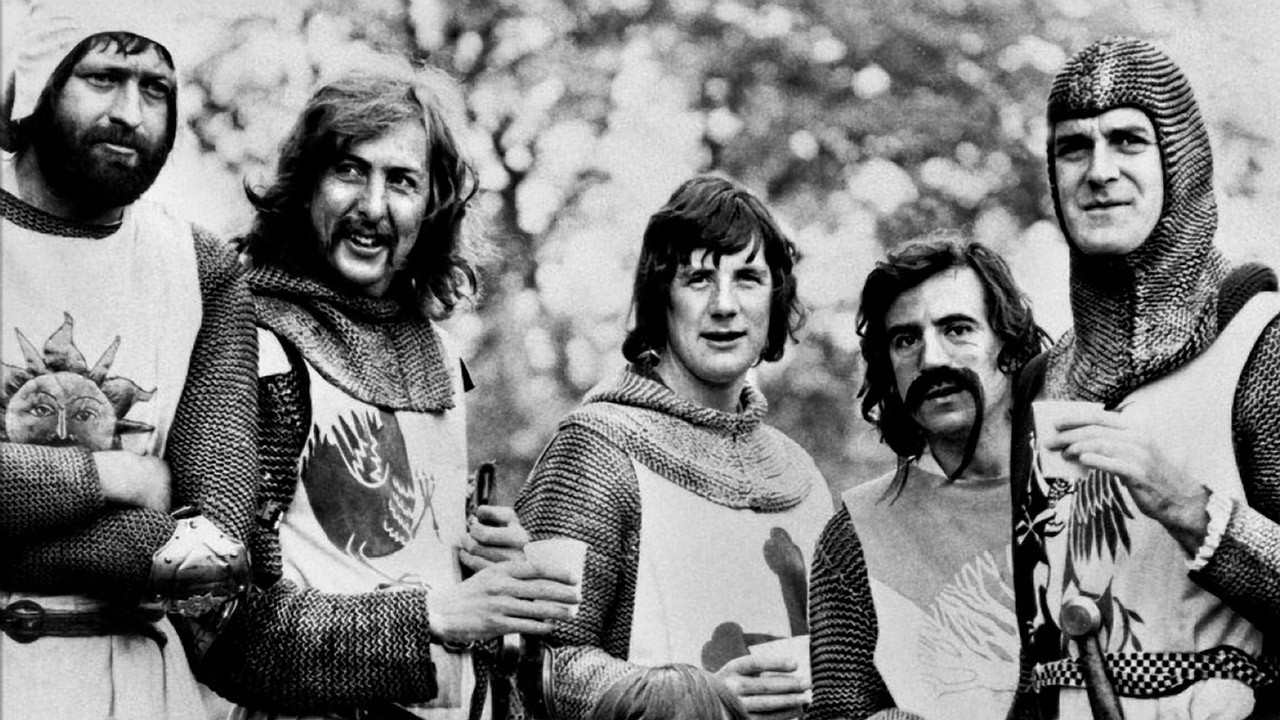
Michael Palin continued his career with a majority of his acting/writing roles in television, while also contributing to fellow Pythons' films. He played various roles in almost all of their films including Gilliam's
Brazil, Jones'
Mr. Toad's Wild Ride, and Cleese's
A Fish Called Wanda. Palin most recently participated in the stage production (and filming) of
Not the Messiah: He's a Very Naughty Boy, the musical adaptation of
Monty Python's Life of Brian. Filmed at the Royal Albert Hall, London in October 2009,
Not the Messiah was a tribute to mark the 40
th anniversary of Monty Python.
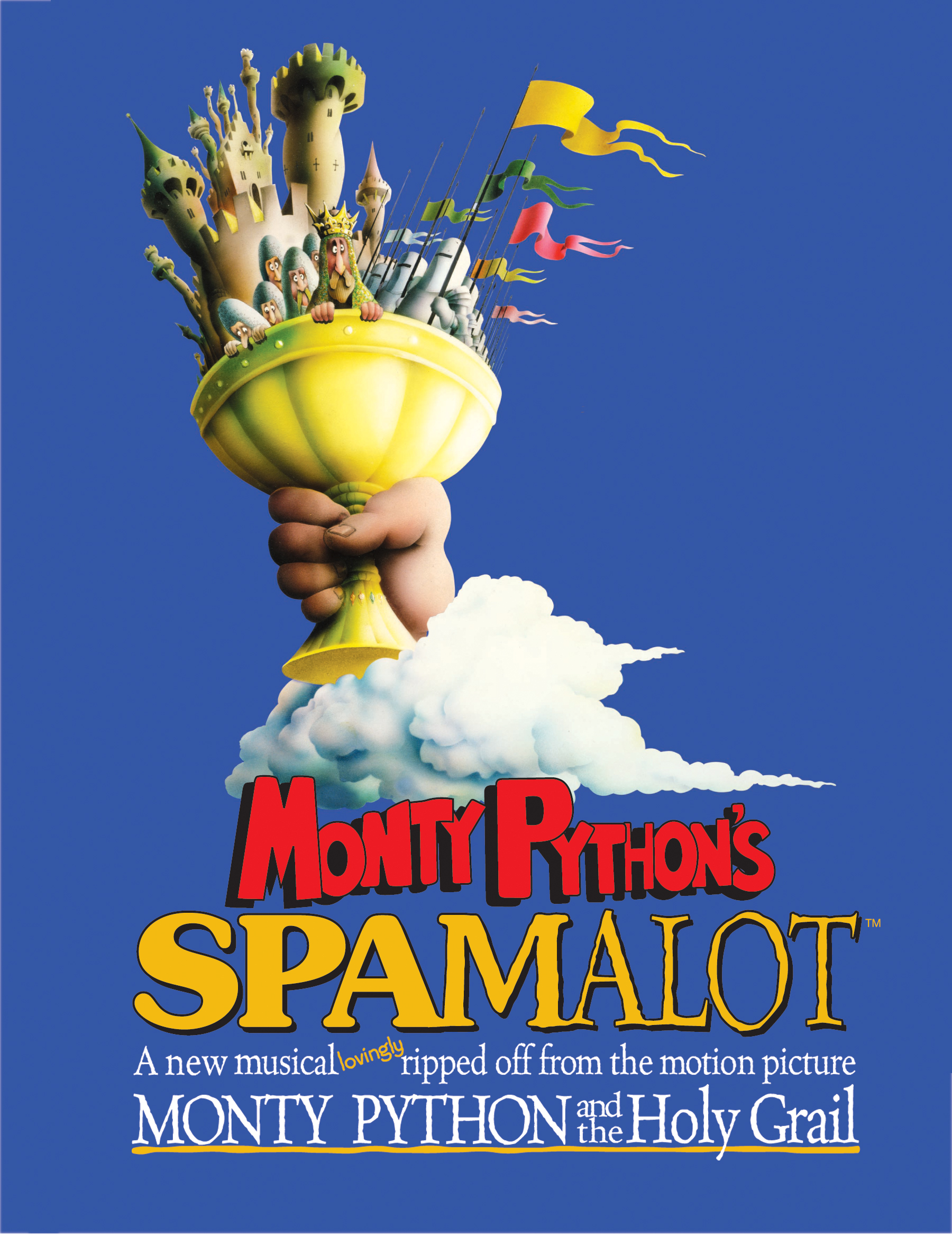
Eric Idle was the only Python who wrote his
Flying Circus sketches alone (Cleese and Chapman wrote as a pair, as did Jones and Palin) and was also responsible for the groups many musical numbers. In 2005, Idle turned his musical talents into the incredibly lucrative, and Tony Award-Winning,
Spamalot. Based on their most popular film,
Monty Python and the Holy Grail, the musical garnered critical acclaim and international success.
Spamalot, which toured the globe until 2013, made all of the Pythons incredibly rich (most of all, Idle) and gave Monty Python a much-deserved resurgence.
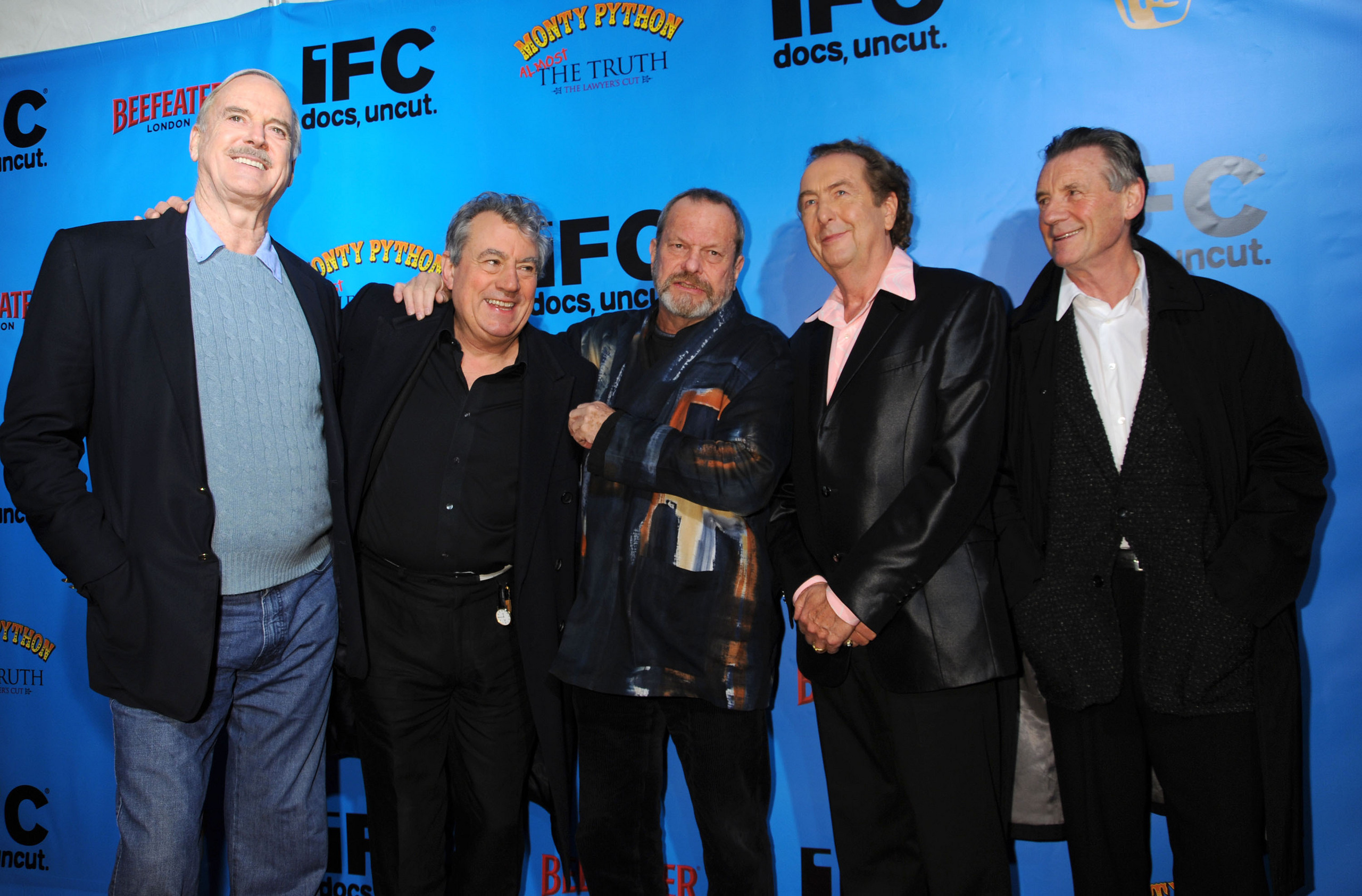
Monty Python are certainly one of the most important comedic groups of all time. As a troupe, they have left an indelible mark on both television and film, and revolutionized both tremendously. Individually, they have each left their mark on film, truly showcasing just how talented each are in their own right. Hopefully “Monty Python Live (Mostly)” will introduce a new audience to the work of this incredible group of septuagenarians who are still just trying to make the world (and themselves) laugh.
 Monty Python's, Monty Python Live (Mostly) reunion show debuted Tuesday evening in South London's O2 Arena to mixed reviews. While mostly positive, a minority of critics noted that watching a group of old men re-hash jokes from the 70's is only fodder for die-hard fans. But that is precisely for whom the show was made for. Because of the group's cult-status, the reunion show had been greatly anticipated, and when rumors turned into actual plans, tickets to the July 1st show sold out in under a minute. The tickets to the O2 show were so popular, in fact, the group decided to extend the performances into late July, and broadcast their July 20th performance live to cinemas world-wide. Although the group gained notoriety from their ground-breaking series, Monty Python's Flying Circus, they are perhaps most-well known for their equally ground-breaking film, Monty Python and the Holy Grail. As one of the most important comedy troupes in history, they constantly pushed the boundaries of good-taste, and what is considered “funny”. As a tribute to this revolutionary group of comedians, we at the Entertainment Fuse movie department have decided to do a retrospective into the group's films, as well as their more-noteworthy solo projects.
Monty Python's, Monty Python Live (Mostly) reunion show debuted Tuesday evening in South London's O2 Arena to mixed reviews. While mostly positive, a minority of critics noted that watching a group of old men re-hash jokes from the 70's is only fodder for die-hard fans. But that is precisely for whom the show was made for. Because of the group's cult-status, the reunion show had been greatly anticipated, and when rumors turned into actual plans, tickets to the July 1st show sold out in under a minute. The tickets to the O2 show were so popular, in fact, the group decided to extend the performances into late July, and broadcast their July 20th performance live to cinemas world-wide. Although the group gained notoriety from their ground-breaking series, Monty Python's Flying Circus, they are perhaps most-well known for their equally ground-breaking film, Monty Python and the Holy Grail. As one of the most important comedy troupes in history, they constantly pushed the boundaries of good-taste, and what is considered “funny”. As a tribute to this revolutionary group of comedians, we at the Entertainment Fuse movie department have decided to do a retrospective into the group's films, as well as their more-noteworthy solo projects.
 Having had various levels of individual success, the group became accustomed to working together on the 1966-67 television program, The Frost Report, where John Cleese was a cast member and Eric Idle, Graham Chapman, Terry Jones and Michael Palin were writers. After the writing pair of Chapman and Cleese were offered their own show from the BBC, they quickly enlisted the help of Palin, Jones, Idle and Terry Gilliam who had their own Television deal with ITV in the works. The group wrote the show as a “stream of consciousness” tied together by Gilliam's unique animations. An instant success, the show lasted for three seasons (1969-1973), before Cleese departed, and continued for a fourth without him (1974).
Having had various levels of individual success, the group became accustomed to working together on the 1966-67 television program, The Frost Report, where John Cleese was a cast member and Eric Idle, Graham Chapman, Terry Jones and Michael Palin were writers. After the writing pair of Chapman and Cleese were offered their own show from the BBC, they quickly enlisted the help of Palin, Jones, Idle and Terry Gilliam who had their own Television deal with ITV in the works. The group wrote the show as a “stream of consciousness” tied together by Gilliam's unique animations. An instant success, the show lasted for three seasons (1969-1973), before Cleese departed, and continued for a fourth without him (1974).
 In 1971 the group released their first film, And Now for Something Completely Different, as a (unsuccessful) foray into the American market. The film was a “greatest hits” of their Flying Circus sketches, redone with a very low budget, and for a cinematic audience. Although it did well in the UK where the group was already somewhat famous, it did not serve as a spring board into American homes. Between the third and fourth season, Monty Python began shooting Holy Grail, which was their first “actual” film. Featuring completely-unseen material, it was an international success. Starring Graham Chapman as the illustrious King Arthur, the film became a cult classic, and is the foundation of many Python fans' love of the group. With the release of Holy Grail came international success, and the eventual broadcasting of Flying Circus in America. Holy Grail is still considered a seminal comedic film, full of classic Python absurdist humor, beautifully assembled animation and the delightful mockery of a celebrated English legend. Monty Python continued their trend of making critically-acclaimed films with the release of Monty Python's Life of Brian. Produced by Beatles guitarist, George Harrison, Life of Brian was a story about a man, Brian (Graham Chapman) who grew up alongside Jesus Christ. Python, once again, used their farcical humor to suppose what would happen if a normal man were to grow up in a time of religious turmoil, and accidentally acquire a group of die-hard followers. Met with condemnation from a minority of religious leaders upon its release, the film was still a box-office hit, and retrospectively considered as perhaps the group's best film. The Pythons' final film (other than Live at The Hollywood Bowl – a filmed stage performance by the Pythons) was Monty Python's The Meaning of Life. Following closely to Flying Circus's template, the film was a series of skits featuring one aspect of “life”. Although the film did not contain any of the iconic animations by Terry Gilliam, it was introduced by a short film, The Crimson Permanent Insurance, directed by Gilliam. The Meaning of Life marks the last time all six Pythons collaborated on film.
In 1971 the group released their first film, And Now for Something Completely Different, as a (unsuccessful) foray into the American market. The film was a “greatest hits” of their Flying Circus sketches, redone with a very low budget, and for a cinematic audience. Although it did well in the UK where the group was already somewhat famous, it did not serve as a spring board into American homes. Between the third and fourth season, Monty Python began shooting Holy Grail, which was their first “actual” film. Featuring completely-unseen material, it was an international success. Starring Graham Chapman as the illustrious King Arthur, the film became a cult classic, and is the foundation of many Python fans' love of the group. With the release of Holy Grail came international success, and the eventual broadcasting of Flying Circus in America. Holy Grail is still considered a seminal comedic film, full of classic Python absurdist humor, beautifully assembled animation and the delightful mockery of a celebrated English legend. Monty Python continued their trend of making critically-acclaimed films with the release of Monty Python's Life of Brian. Produced by Beatles guitarist, George Harrison, Life of Brian was a story about a man, Brian (Graham Chapman) who grew up alongside Jesus Christ. Python, once again, used their farcical humor to suppose what would happen if a normal man were to grow up in a time of religious turmoil, and accidentally acquire a group of die-hard followers. Met with condemnation from a minority of religious leaders upon its release, the film was still a box-office hit, and retrospectively considered as perhaps the group's best film. The Pythons' final film (other than Live at The Hollywood Bowl – a filmed stage performance by the Pythons) was Monty Python's The Meaning of Life. Following closely to Flying Circus's template, the film was a series of skits featuring one aspect of “life”. Although the film did not contain any of the iconic animations by Terry Gilliam, it was introduced by a short film, The Crimson Permanent Insurance, directed by Gilliam. The Meaning of Life marks the last time all six Pythons collaborated on film.
 After Monty Python dissolved, the various, very talented members made their own contributions to the film world. Graham Chapman, who passed away in 1989 from cancer, had a very prolific writing career. Most-notably (aside from Python), penned the screenplay to Yellowbeard, a spoof of the popular “Blackbeard” pirate legend. The film, which also stars Chapman as the eponymous Yellowbeard, features Tommy Chong and Cheech Marin as fellow pirates. Yellowbeard, who has been released from prison to lead the British Royal Navy to his treasure, must work alongside his crew – and newly-discovered son – to acquire the treasure before the Royal Navy. As with most movies made by a Python, the film features a cameo of at least one other Python (in this case, John Cleese plays the pirate, Harvey Pew).
After Monty Python dissolved, the various, very talented members made their own contributions to the film world. Graham Chapman, who passed away in 1989 from cancer, had a very prolific writing career. Most-notably (aside from Python), penned the screenplay to Yellowbeard, a spoof of the popular “Blackbeard” pirate legend. The film, which also stars Chapman as the eponymous Yellowbeard, features Tommy Chong and Cheech Marin as fellow pirates. Yellowbeard, who has been released from prison to lead the British Royal Navy to his treasure, must work alongside his crew – and newly-discovered son – to acquire the treasure before the Royal Navy. As with most movies made by a Python, the film features a cameo of at least one other Python (in this case, John Cleese plays the pirate, Harvey Pew).
 John Cleese has had the most prolific career of any of the Pythons, and has 130 acting credits to his name on IMDB. He has played roles from Q's assistant R(and eventually Q) in James Bond films, to Nearly-Headless Nick in the Harry Potter franchise. Cleese's voice acting is just as diverse, having played the King in the Shrek series, and the Narrator in the 2011 Winnie the Pooh film. Cleese also penned the story to several films, including A Fish Called Wanda, and more recently, animated hit, The Croods. A Fish Called Wanda is a critically-acclaimed heist comedy surrounding a superb cast including Jamie Lee Curtis, Kevin Kline and fellow Python, Michael Palin. A hilarious slap-stick comedy, A Fish Called Wanda features Jamie Lee Curtis as a con-artist who uses her charm to get at a hoard of stolen jewelry. Kevin Kline won an Academy Award for his work as a Supporting Actor, and the film was nominated for Best Director and Best Original Screenplay.
John Cleese has had the most prolific career of any of the Pythons, and has 130 acting credits to his name on IMDB. He has played roles from Q's assistant R(and eventually Q) in James Bond films, to Nearly-Headless Nick in the Harry Potter franchise. Cleese's voice acting is just as diverse, having played the King in the Shrek series, and the Narrator in the 2011 Winnie the Pooh film. Cleese also penned the story to several films, including A Fish Called Wanda, and more recently, animated hit, The Croods. A Fish Called Wanda is a critically-acclaimed heist comedy surrounding a superb cast including Jamie Lee Curtis, Kevin Kline and fellow Python, Michael Palin. A hilarious slap-stick comedy, A Fish Called Wanda features Jamie Lee Curtis as a con-artist who uses her charm to get at a hoard of stolen jewelry. Kevin Kline won an Academy Award for his work as a Supporting Actor, and the film was nominated for Best Director and Best Original Screenplay.
 Terry Jones is best known for his direction of the Python films (excluding And Now for Something Completely Different) as well as being the writer/director of comedy films Eric the Viking and Mr.Toad's Wild Ride. Eric the Viking stars a young Tim Robbins and Mickey Rooney as Vikings who must sail to Valhalla to ask the gods to end Ragnarok. It is, of course, a Pythonesque comedy full of out-of-place humor and satire. Mr. Toad's Wild Ride stars Steve Coogan (Mole), Eric Idle (Rat) and Jones himself (Toad). The film also features Python-ers Palin and Cleese, and is set in pre-WWI England. Mole and Rat must go on a long and hilarious quest to find Mr. Toad, who has bought up all the land on which the duo previously lived. Thwarting evil weasels along the way, this Disney classic even inspired a ride of the same name at the Disneyland Amusement Park.
Terry Jones is best known for his direction of the Python films (excluding And Now for Something Completely Different) as well as being the writer/director of comedy films Eric the Viking and Mr.Toad's Wild Ride. Eric the Viking stars a young Tim Robbins and Mickey Rooney as Vikings who must sail to Valhalla to ask the gods to end Ragnarok. It is, of course, a Pythonesque comedy full of out-of-place humor and satire. Mr. Toad's Wild Ride stars Steve Coogan (Mole), Eric Idle (Rat) and Jones himself (Toad). The film also features Python-ers Palin and Cleese, and is set in pre-WWI England. Mole and Rat must go on a long and hilarious quest to find Mr. Toad, who has bought up all the land on which the duo previously lived. Thwarting evil weasels along the way, this Disney classic even inspired a ride of the same name at the Disneyland Amusement Park.
 Also known for his fruitful directing career, Terry Gilliam has directed over ten hollywood features including the seminal, Brazil, The Fisher King, Time Bandits, The Adventures of Baron Von Munchausen, Fear and Loathing in Las Vegas and 12 Monkeys. Defined by his surrealist stylings and bizarre world construction, Gilliam has made an indelible mark on the film world. One of his most popular films, 12 Monkeys stars Bruce Willis as an unwilling time-traveler who must go back in time to thwart the destructive plans of anarchist group, The 12 Monkeys. This meandering and farcical narrative, is compelling to watch, and is revolutionary in its concept.
Also known for his fruitful directing career, Terry Gilliam has directed over ten hollywood features including the seminal, Brazil, The Fisher King, Time Bandits, The Adventures of Baron Von Munchausen, Fear and Loathing in Las Vegas and 12 Monkeys. Defined by his surrealist stylings and bizarre world construction, Gilliam has made an indelible mark on the film world. One of his most popular films, 12 Monkeys stars Bruce Willis as an unwilling time-traveler who must go back in time to thwart the destructive plans of anarchist group, The 12 Monkeys. This meandering and farcical narrative, is compelling to watch, and is revolutionary in its concept.
 Michael Palin continued his career with a majority of his acting/writing roles in television, while also contributing to fellow Pythons' films. He played various roles in almost all of their films including Gilliam's Brazil, Jones' Mr. Toad's Wild Ride, and Cleese's A Fish Called Wanda. Palin most recently participated in the stage production (and filming) of Not the Messiah: He's a Very Naughty Boy, the musical adaptation of Monty Python's Life of Brian. Filmed at the Royal Albert Hall, London in October 2009, Not the Messiah was a tribute to mark the 40th anniversary of Monty Python.
Michael Palin continued his career with a majority of his acting/writing roles in television, while also contributing to fellow Pythons' films. He played various roles in almost all of their films including Gilliam's Brazil, Jones' Mr. Toad's Wild Ride, and Cleese's A Fish Called Wanda. Palin most recently participated in the stage production (and filming) of Not the Messiah: He's a Very Naughty Boy, the musical adaptation of Monty Python's Life of Brian. Filmed at the Royal Albert Hall, London in October 2009, Not the Messiah was a tribute to mark the 40th anniversary of Monty Python.
 Eric Idle was the only Python who wrote his Flying Circus sketches alone (Cleese and Chapman wrote as a pair, as did Jones and Palin) and was also responsible for the groups many musical numbers. In 2005, Idle turned his musical talents into the incredibly lucrative, and Tony Award-Winning, Spamalot. Based on their most popular film, Monty Python and the Holy Grail, the musical garnered critical acclaim and international success. Spamalot, which toured the globe until 2013, made all of the Pythons incredibly rich (most of all, Idle) and gave Monty Python a much-deserved resurgence.
Eric Idle was the only Python who wrote his Flying Circus sketches alone (Cleese and Chapman wrote as a pair, as did Jones and Palin) and was also responsible for the groups many musical numbers. In 2005, Idle turned his musical talents into the incredibly lucrative, and Tony Award-Winning, Spamalot. Based on their most popular film, Monty Python and the Holy Grail, the musical garnered critical acclaim and international success. Spamalot, which toured the globe until 2013, made all of the Pythons incredibly rich (most of all, Idle) and gave Monty Python a much-deserved resurgence.
 Monty Python are certainly one of the most important comedic groups of all time. As a troupe, they have left an indelible mark on both television and film, and revolutionized both tremendously. Individually, they have each left their mark on film, truly showcasing just how talented each are in their own right. Hopefully “Monty Python Live (Mostly)” will introduce a new audience to the work of this incredible group of septuagenarians who are still just trying to make the world (and themselves) laugh.
Monty Python are certainly one of the most important comedic groups of all time. As a troupe, they have left an indelible mark on both television and film, and revolutionized both tremendously. Individually, they have each left their mark on film, truly showcasing just how talented each are in their own right. Hopefully “Monty Python Live (Mostly)” will introduce a new audience to the work of this incredible group of septuagenarians who are still just trying to make the world (and themselves) laugh.